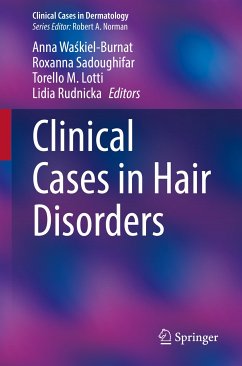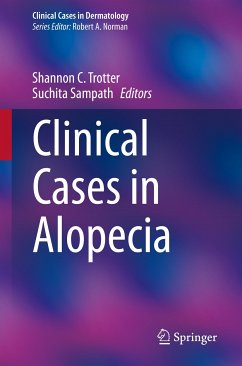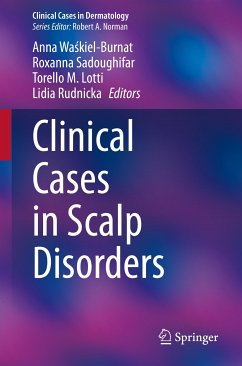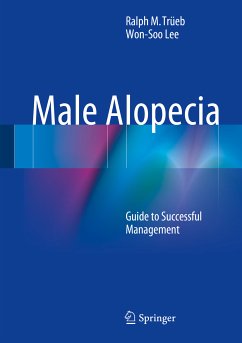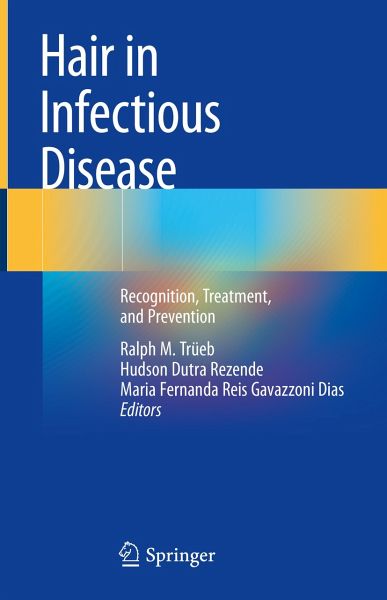
Hair in Infectious Disease (eBook, PDF)
Recognition, Treatment, and Prevention
Redaktion: Trüeb, Ralph M.; Gavazzoni Dias, Maria Fernanda Reis; Dutra Rezende, Hudson
Versandkostenfrei!
Sofort per Download lieferbar
112,95 €
inkl. MwSt.
Weitere Ausgaben:

PAYBACK Punkte
56 °P sammeln!
The novel viral pandemic coronavirus disease 2019 (COVID-19) has sparked uncertainties and controversies as to its origin, epidemiology, and natural course. In this situation, the medical disciplines have strived to contribute to a better understanding of the disease with the best available evidence gained from the scientific method of observation and statistics. The study of the cutaneous manifestations of COVID-19 has evolved with the hope that they may be useful as markers for the disease, for prognostication, and further insights into the pathogenesis of the disease manifestations. In the ...
The novel viral pandemic coronavirus disease 2019 (COVID-19) has sparked uncertainties and controversies as to its origin, epidemiology, and natural course. In this situation, the medical disciplines have strived to contribute to a better understanding of the disease with the best available evidence gained from the scientific method of observation and statistics. The study of the cutaneous manifestations of COVID-19 has evolved with the hope that they may be useful as markers for the disease, for prognostication, and further insights into the pathogenesis of the disease manifestations. In the wake of COVID-19, we have decided to take a more general look at the hair and scalp in infectious disease. Specifically, we must recognize that infectious diseases have wider preconditions besides the infectious agents, to include environmental and societal factors. Unless we also take account of the ecological, immunological, and behavioral circumstances that affect the emergence and spread ofinfectious diseases, including those of the hair and scalp, our knowledge of the pathogens and their connection to clinical disease presentation remain only partial and incomplete. This book aims at illustrating in detail the environmental and individual preconditions, the pathogens, the clinical presentations, and the management of the infectious diseases that affect the hair and scalp, to include superficial and deep bacterial, fungal, and viral infections, infestations, systemic infectious diseases causing hair loss, their effective treatment, and their prevention.
Hair in Infectious Disease offers a complete overview of infectious hair disease and guides the practitioner in the choice of the best treatment; it will be a valued companion to board-certified dermatologists and dermatologists in training.
Hair in Infectious Disease offers a complete overview of infectious hair disease and guides the practitioner in the choice of the best treatment; it will be a valued companion to board-certified dermatologists and dermatologists in training.
Dieser Download kann aus rechtlichen Gründen nur mit Rechnungsadresse in A, B, BG, CY, CZ, D, DK, EW, E, FIN, F, GR, HR, H, IRL, I, LT, L, LR, M, NL, PL, P, R, S, SLO, SK ausgeliefert werden.



